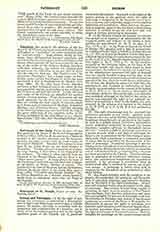

Patrology, the study of the writings of the Fathers of the Church, has more commonly been known in England as “patristics”, or, more commonly still, as “patristic study”. Some writers, chiefly in Germany, have distinguished between patrologia and patristica: Fessler, for instance, defines patrologia as the science which provides all that is necessary for the using of the works of the Fathers, dealing, therefore, with their authority, the criteria for judging their genuineness, the difficulties to be met with in them, and the rules for their use. But Fessler’s own “Institutiones Patrologia” has a larger range, as have similar works entitled Patrologies, of which the most serviceable is that of Bardenhewer (tr. Shahan, Freiburg, 1908). On the other hand, Fessler describes patristica as that theological science by which all that concerns faith, morals, or discipline in the writings of the Fathers is collected and sorted. Lastly, the lives and works of the Fathers are described by another science: literary history. These distinctions are not much observed, nor do they seem very necessary; they are nothing else than aspects of patristic study as it forms part of fundamental theology, of positive theology, and of literary history. Another meaning of the word patrologia has come to it from the title of the great collections of the complete works of the Fathers published by the Abbé Migne (q.v.), “Patrologia Latina”, 221 vols., and “Patrologia Graeca”, 161 vols.
JOHN CHAPMAN

